Delta variant: Which Asian countries are seeing rising cases?
- Published
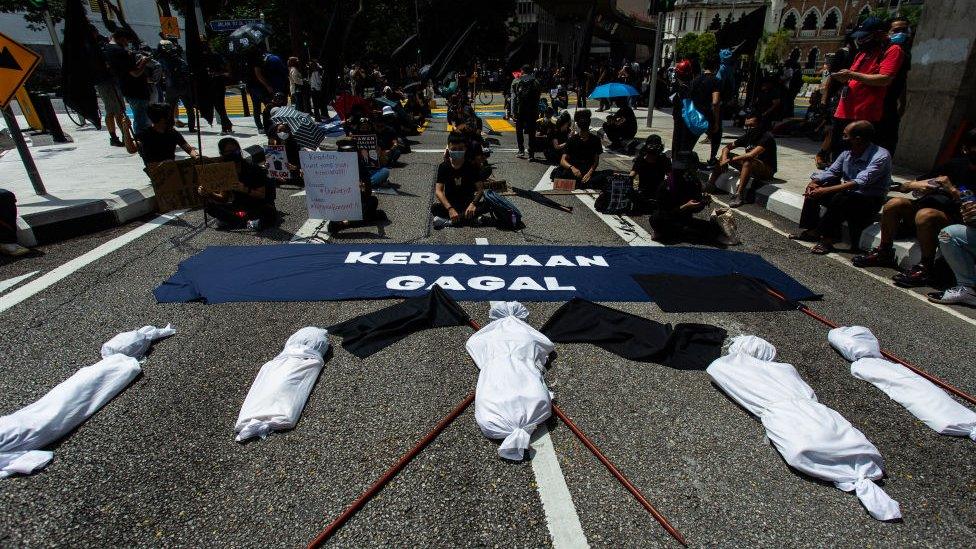
Citizens in Malaysia protest in front of fake corpses to symbolise high number of deaths
The Delta variant is contributing to a rapid rise in Covid cases in parts of Asia causing a severe strain on health infrastructure in some countries.
Vaccinations rates are relatively low in many Asian countries, leading to fears the virus will continue to spread.
What has happened to case numbers?
The Delta variant has been identified in at least 132 countries worldwide, according to the World Health Organization (WHO).
It has been described as the "most transmissible of the variants identified so far" by the WHO.
In Asia, a number of countries, including some which were relatively successful in containing the coronavirus last year, have seen sharply rising cases.
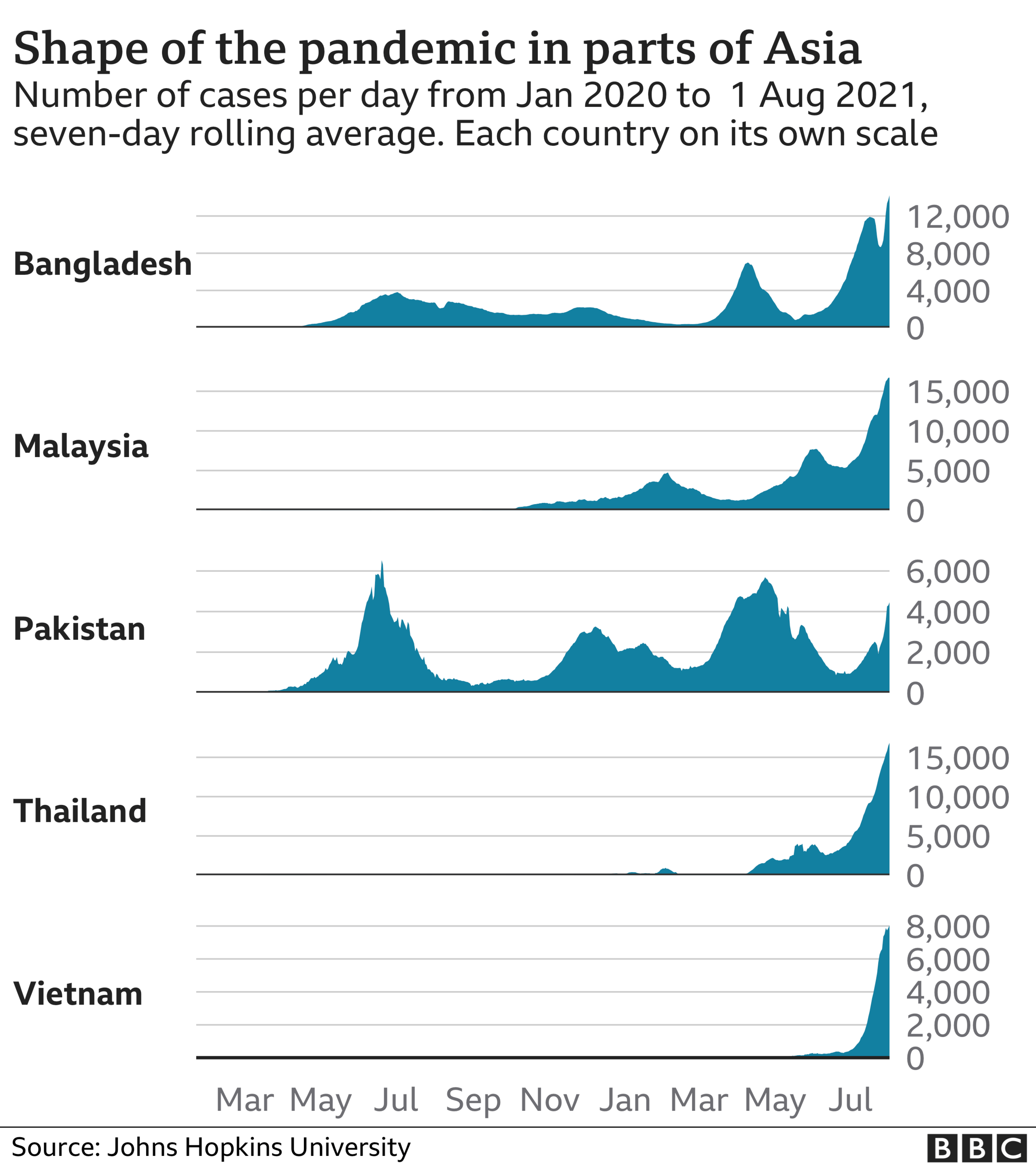
China is seeing a fresh outbreak in some provinces, the largest in the country for some months. And Japan, currently hosting the Olympics, is in the midst of a dramatic increase in case numbers.
But Malaysia, Bangladesh, Pakistan, Thailand and Vietnam have also all been experiencing sharp increases.
Malaysia
Malaysia has now become one of the hotspots in Asia, and saw a record of 17,786 new cases on 31 July and daily deaths at a record high of 219 on 2 August.
The country has been experiencing shortages of beds, ventilators and oxygen.
Despite being in lockdown, some citizens have taken to the streets to protest at the government's handling of the pandemic.
At the end of June, around 70% of the samples sequenced in Malaysia were linked to the Delta variant, according to Our World in Data.
The proportion of Malaysians fully vaccinated is higher than in some of its neighbours - but is still at only 21% of the population.
Bangladesh
Bangladesh, which has a long border with India, has experienced an upward trend in cases since mid-May.
The Delta variant was detected in 100% of the tests sequenced in the country up to 12 July.
Amid rising cases, the country had lifted curbs and lockdown ahead of a major religious festival in July.
It re-imposed a stricter lockdown after the festivities, but has relaxed it again.
July saw the highest number of cases and deaths since the pandemic began.
Although it was earlier than many other countries in starting vaccinations, the rollout in Bangladesh has generally been slow.
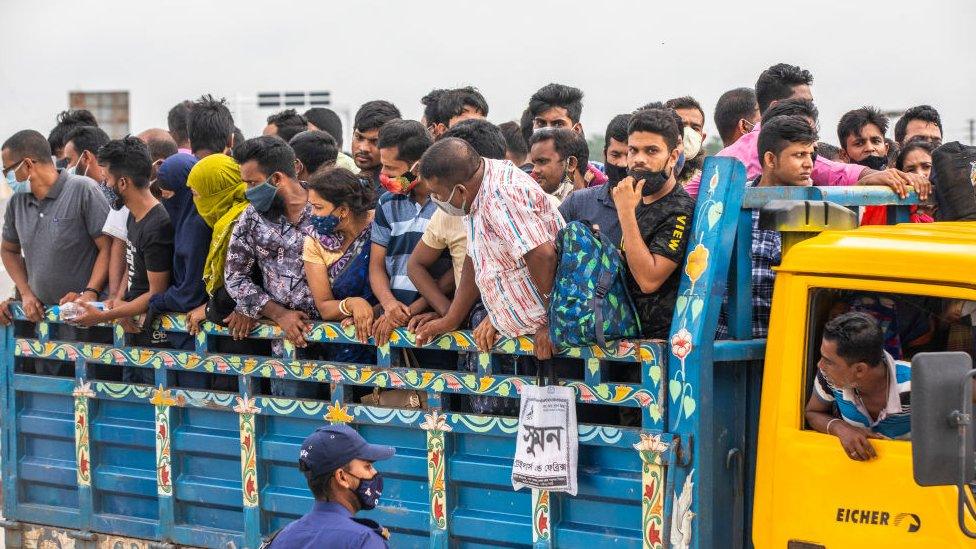
People return to the capital, Dhaka, as restrictions ease
In April, Bangladesh was forced to suspend vaccinations because exports of the AstraZeneca vaccine from India were halted.
The rollout has now resumed with supplies of China's Sinopharm and the Pfizer vaccine provided through the global Covax vaccine sharing scheme.
Less than 3% of the population of Bangladesh had been fully vaccinated as of 1 August.
Thailand
The country's daily cases and deaths were at a record high on 31 July.
The recent rise in cases and deaths in Thailand has been attributed in part to the Delta variant.
The Thai government recently said that 60% of cases were linked to the Delta variant with the figure as high as 80% in the capital, Bangkok.
The country had recently opened up to tourists, but the government has now announced strict curbs which will be imposed from 3 to 19 August in 29 provinces.
Health officials have said that 90% of hospital beds in Bangkok and 80% of beds nationwide are occupied, and the authorities are keeping increasing numbers of people in isolation at home if they have mild or no symptoms.
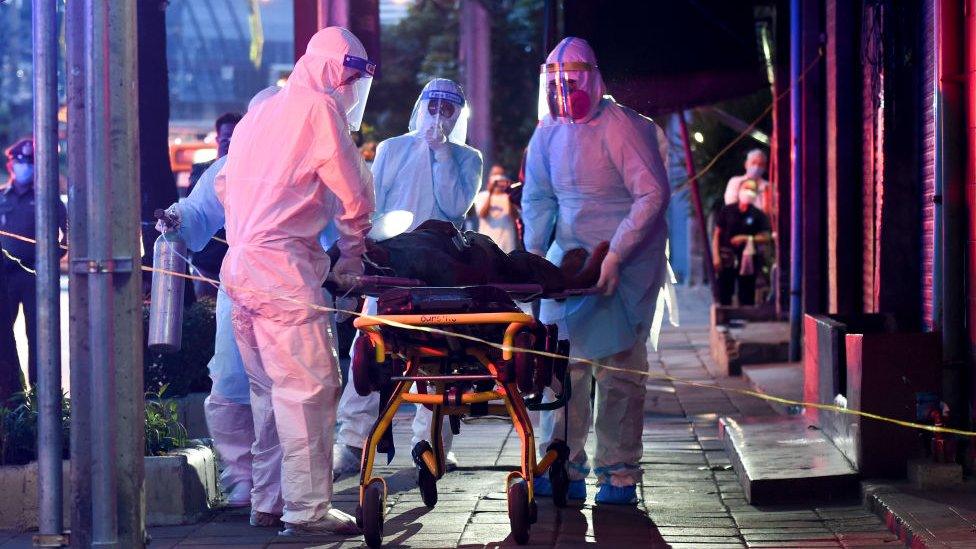
Hospitals in Thailand are overwhelmed
Vaccination rates have also remained low with at least 25 vaccination centres shutting due to shortages of vaccine supplies.
Only a little over 5% of the population was fully vaccinated as of 25 July.
Pakistan
Case numbers have been rising sharply as the country undergoes another coronavirus surge, fuelled in part by the Delta variant.
At the end of May, about a third of cases sequenced during the previous two weeks were recorded as being the Delta variant.
The exact spread of the variant is difficult to map as Pakistan does not have the capacity to do lots of sequencing of coronavirus tests.
The UK is offering support to Pakistan and other countries so that they can carry out more sequencing, external.
Some parts of the country have imposed lockdowns, but Pakistan has low levels of vaccination, allowing the virus to spread more easily.
Less than 3% of the population is fully vaccinated.
Vietnam
The country had managed to keep Covid-19 under control through testing, effective contact tracing and border restrictions until April this year when the Delta variant was detected.
Until early July, Vietnam had reported less than 100 deaths since the start of the pandemic in 2020, but that had risen to more than 1,300 by 1 August.
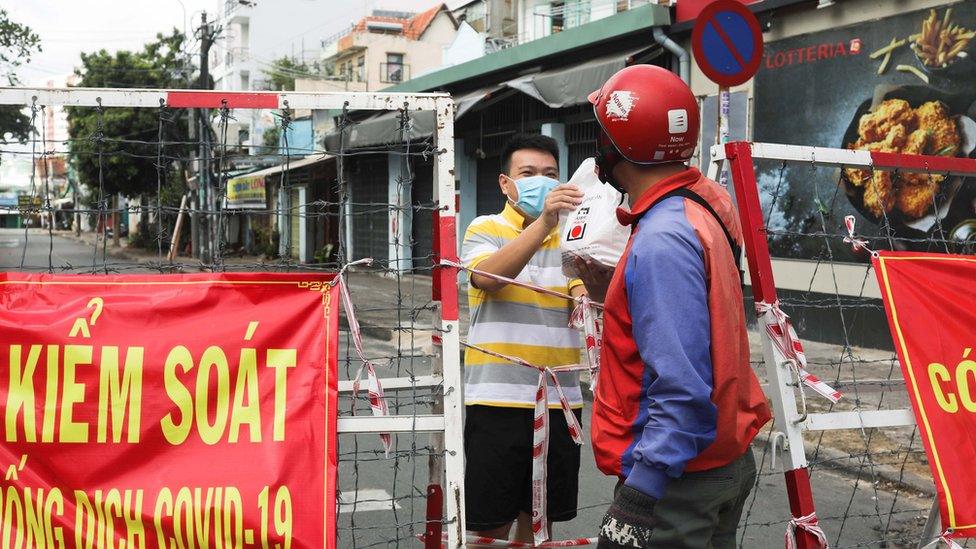
Vietnam has put restrictions in place in Ho Chi Minh and other cities
Around 85% of total coronavirus cases were reported in just the last month.
The health minister recently said that that the Delta variant was "destroying all anti-pandemic achievements" - but it is unclear how many cases are linked to the Delta variant.
Despite restrictions in place, cases continue to rise, with Ho Chi Minh City the worst affected area.
The vaccination programme has moved very slowly with only 0.68% of the population fully vaccinated as of 1 August.
